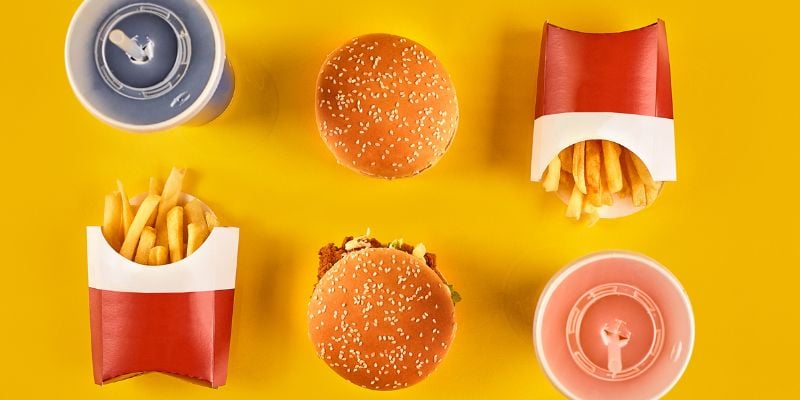A ban on the advertising of sugary, fatty food on Transport for London has stopped tens of thousands of people from becoming overweight, new research has claimed.
London mayor Sadiq Khan brought in the ban in February 2019 in a bid to stem rising obesity rates.
New analysis of the policy has claimed that almost 95,000 fewer people in the capital were classed as obese a year after the ban came in, which experts have said will save the NHS around £218m over the lifetime of the population.
- Junk food in reality TV could be fuelling obesity
- More evidence links junk food to heart disease and stroke
Now there are calls for the advertising ban – which covers food and drink high in fat, salt and sugar – to be extended to other parts of the country.
The team behind the research say that the ban could help reduce health inequalities as they said it had the biggest impact on people living in London’s most deprived areas.
First author Dr Chloe Thomas, a researcher at the University of Sheffield, said: “We all know how persuasive and powerful advertising can be in influencing what we buy — especially the food we eat.
“Our study has shown what an important tool advertising restrictions can be in order to help people lead healthier lives without costing them more money.
“We hope that demonstrating the policy’s significant benefits in preventing obesity and the diseases exacerbated by obesity, will lead to it being rolled out on a national scale, something that could save lives and NHS money.”
The findings were revealed after the shopping habits of almost 2,000 London households were compared to those of a group living outside the capital. The research team also looked at weight and disease trends in the different areas.
The data was run through a maths model to predict the health outcomes, comparing the results from areas with a ban on junk food advertising and areas without.
In addition to the effect on obesity, the research also said the advertising ban was linked to 5,000 fewer cases of type 2 diabetes and cardiovascular disease.
London Mayor Sadiq Khan said: “Advertising undoubtedly plays a significant role in promoting and encouraging the consumption of less healthy foods.
- Man puts type 2 diabetes into remission 23 years since diagnosis
- Low intake of processed foods at night linked to reduced mortality risk in people with diabetes
“With child obesity putting the lives of young Londoners at risk it simply isn’t right that children and families across the capital are regularly inundated with adverts for foods that do not support their health – that’s why I was clear that tough action was needed.”
However, not everyone has supported the findings, with critics saying the study used “flawed methodology”.
Emma Best, GLA Conservatives Health spokesperson, said: “With rising childhood obesity in London, amongst reception and year 6 children, it is brazen for the Mayor to claim success on the basis of junk science which has been roundly and repeatedly debunked.
“With up to £25million in lost revenue and a flawed and inconsistent roll-out of this policy, Londoners rightly expect the Mayor to stop pushing dodgy research to cover up his mistakes, and start taking serious action to improve the health of London’s children.”






